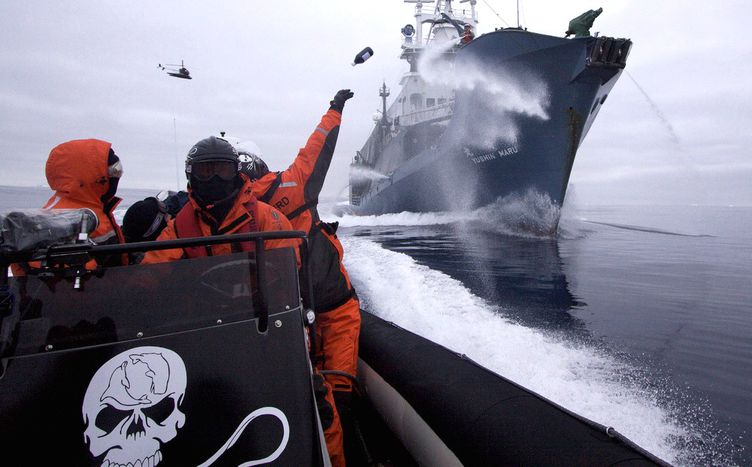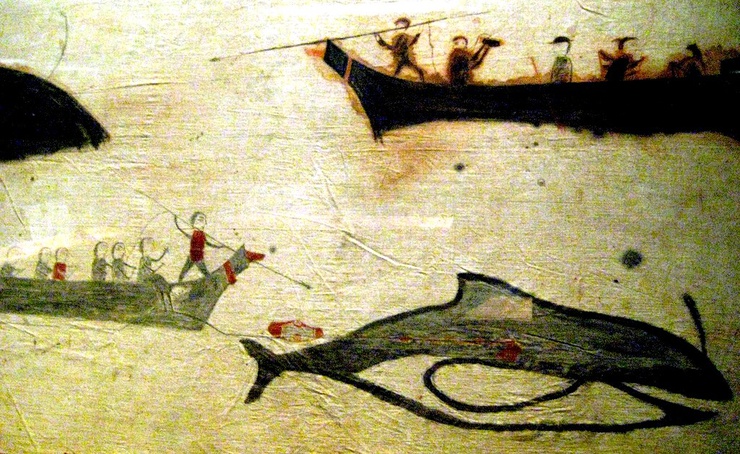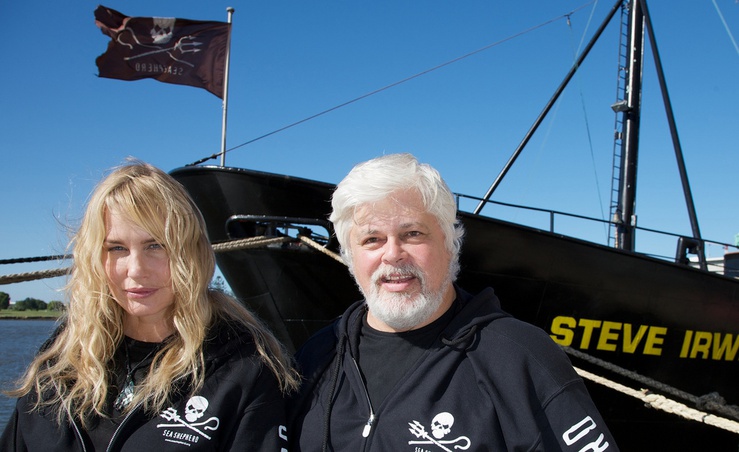
Sea Shepherd: tuna fish pirates hiding in a stretch of sea near you
Published on
Translation by:
Cafebabel ENG (NS)The American conservation society are preparing a ‘No Compromise’ campaign against illegal whale fishing in the Antarctic. Now the ecological pirates are back to fight against tuna fish hunters in the Mediterannean
The Sea Shepherd Conservation Society, founded in 1977, is an international non-profit organisation which works actively to protect the seas. Founder Paul Watson wants to help avoid the destruction of the environment and biodiversity. Someone had to speak up for the long list of fishing boats which are stopped by the organisation – whose symbol is also a pirates flag.
Is it a case of pirates versus pirates? Sea Shepherd takes the United Nations world charter for nature word for word, which explains how to protect the world’s ecosystems and threatened species. Hundreds of volunteers are ready to risk everything to protect the seas. The organisation is funded by doners and is independent; independence is a pillar of Sea Shepherd.
2002 marked Sea Shepherd’s most successful intervention against Japanese whale fishers in the Antartic. The international whaling commission (IWC) forbid whale fishing in 1986, with measures only being allowed for research purposes. That’s the grey zone that Sea Shepherd and the Japanese get in the way of, whale fishing for mock research purposes and stopping the pursuit of commercial whale fishing.

The ships are always hot on the heels of the Japanese. The Steve Irwin (named after the former Australian television presenter and conversationist who died after a stingray attack in 2006), the Bob Barker and in 2010, the Ocean Adventurer, an ultra-light speedboat. The Japanese sunk the Ady Gill boat in 2009, but Paul Watson and his team won’t be stopped in their mission to put an end to the whale massacre at any cost. ‘We’ll stop when they stop,’ explains Locky MacLean, captain of the Ocean Adventurer. Sea Shepherd is hoping that new boats and a helicopter will speed up the search for Japanese fishing boats. They’re not wrong in their dreams and estimations either – the Japanese are falling below their quota and fishing less and less whales every year. Sea Shepherd saved five hundred whales in 2009.
The Japanese are falling below their quota
In the past, Sea Shepherd raised many issues in Europe too, beginning with a campaign against the Icelandic and Norwegian whalers. A Sea Shepherd boat went on its maiden voyage this year in the Mediterannean to find illegal red tuna hunters. Today only 10% of red tuna is still available and it is on the brink of extinction. Scientists agree that fishing levels need to be drastically reduced. Tuna fish that come to the Mediterannean to reproduce end up caged up in nets and fattened up until they have the perfect weight, before they are sold and shipped off to places like Japan, where it is considered a delicacy.

Red tuna is a good invention. In 2001 180 kilos were sold for 173, 000 dollars. The company Mitsubishi, which is better known for its motorbikes than its fishing, has built up good business by investing in red tuna. Red tuna will remain deep frozen and stockpiled at Mitsubishi's gigantic refrigerators until the prices for the fish start climbing – or until they’re completely died out.
The Steve Irwin travelled between the seas of Malta, Tunisia and Libya for three weeks. On 17 June they came upon a cage of red tuna. ‘It was clearly a suspect package and the consume by date was well overdue,’ says one volunteer. ‘Along with four other volunteers we checked the nets closely: I didn’t even realise the red tuna were there because I was so busy trying to cut open the net. I saw this hypnotising buzz of activity beneath me, these fish who were crossed over onto each other in such an unnatural way. I understood then that I wasn’t just about to split open a fishing net but was about to leave hundreds of tuna fish to their would-be fate,’ he continues, full of pride. ‘We have freed 800 tuna fish. It was the first time that an event of that kind was achieved in the Mediterranean.’
You can also find Sea Shepherd in Spain and Italy, two countries for whom the sea is extremely important. Will Sea Shepherd also be as active in the Mediterranean in a near future? ‘We’re not ruling out a couple of events to save tunafish and against the fishing nets between Turkey and Greece, probably next year,’ explains Locky MacLean. Sea Shepherd hasn’t had the last word, as Paul Watson summarises the problem: ‘The sea dies, we die – it’s as simple as that.’
Image: main and Paul Watson (cc)guano/ Flickr ; (cc)wallyg/ Flickr
Translated from Sea Shepherd : les pirates de la biodiversité



